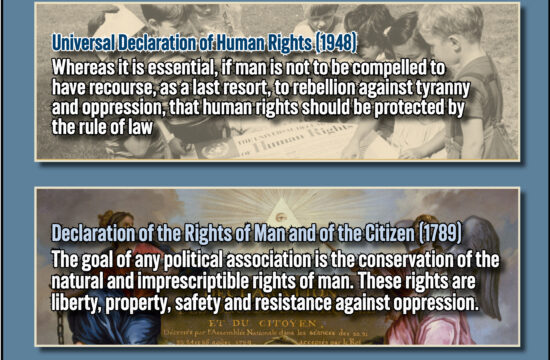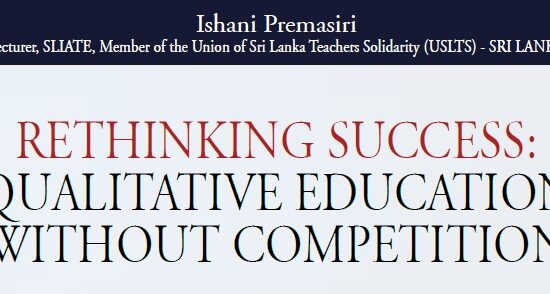Aybars Akdoğan – Neslihan Doğulu
Advocate-TÜRKİYE – Doctor of Medicine -TÜRKİYE
1- THE RIGHT OF RESISTANCE IN GENERAL
Historically, the right to resist has taken shape as the right of people to defend their freedoms, to oppose injustice and to rebel against the tyranny of power. The historical roots of the right to resist can be traced back to philosophical and political thought.
The intellectuals of the Enlightenment deepened their reflections on the freedoms and rights of individuals; these ideas found concrete expression in the revolutions of the 18th and 19th centuries, especially in the French Revolution and the American War of Independence. In the course of history, many nations have used their right of resistance to gain their freedom and have taken important steps in the struggle for human rights. The American War of Independence and the French Revolution are examples of how people unite against injustice and how important it is to resist.
In the historical process (…) the right to resist, which was born as the right to rebel against the government, which has become an instrument of oppression and persecution with its illegal actions and behavior, takes its source (…) from the doctrine of natural law.1 According to natural law, justice and law exist before the state and the law, and if the state and the law violate people’s rights, individuals have the right to resist these violations. In this context, the legitimate resistance of the people is the natural right of the people against the lawlessness of the state.
Many communities used this right to refuse to accept the injustices of the state and took important steps in the struggle for social justice. In the French Declaration of the Rights of Man and of the Citizen, the right to resist was expressed as a consequence of other human rights, and following this expression, it was stipulated that the right to resist when the government violates the rights of the people is the most sacred of rights and the most necessary of duties.2
The right to resist against oppression, which has become a rule of positive law under the French Constitution of 1791 and the American Declaration of Independence, was included in the preamble of the 1961 Constitution of the Republic of Türkiye, but not in the 1982 Constitution of the Republic of Türkiye. Nevertheless; it is a natural right of human beings to react against oppression, persecution, injustice and unfairness, in other words, to resist. The fact that this right is not regulated in the constitutions does not make it a right.3
The Constitutional Court of the Republic of Turkiye, in its decision dated 8.12.1988 and numbered 1988/2 File and 1988/1 Decision, accepted the existence of the right of resistance, although it is not included in the 1982 Constitution. This decision concerns the inclusion of the expression “right to resist” in the program of a political party and the decision emphasizes that the expression “right to resist” must be accepted as a constitutional concept:
(…) We can argue that this right, important in terms of individual freedoms, can cause anarchy in practice. Nevertheless, the right to resist has been included in constitutional documents such as the Great Edict of Liberty (Magna Carta Libertatum, 1215 article 61); the Petition of Rights (1628); the Habeas- Corpus Act (1679); the Bill of Rights (1689) in England; the Virginia Declaration of Rights (1776 article 3) in the United States of America, the French Declaration of the Rights of Man and of the Citizen of 1789 (Resistance to oppression, article 2) in France; and in article 20 of the German Federal Constitution. Thus, it is understood that the “right to resist” is a concept that is not alien to Constitutional Law.4
The Universal Declaration of Human Rights considers it an essential need „to protect human rights through the rule of law so that people do not have to rebel against tyranny and oppression as a last resort“ In this context, the right to resist is not only an act of rebellion but also a necessary tool to ensure justice. The right to resist is one of the most important rights a people can exercise against oppression, persecution and injustice.
If legal recourses are blocked or ineffective in the face of oppression, persecution and illegal practices, if all legal recourses have been tried but have failed, if there are no adequate legal safeguards or effective legal remedies to show a common reaction to the continuous curtailment of fundamental rights and freedoms in society, or if individuals are prohibited from expressing themselves are justifiable reasons for exercising the right to resist.
The right to resist is both an ethical and a legal issue. The exercise of the right to resist, from an ethical point of view, generally focuses on two main approaches: non-violent resistance and violent resistance.
Non-violent Resistance: Nonviolent resistance to oppression usually manifests itself in the form of civil disobedience. [T]he civil disobedience can be defined as a common form of action against injustice, it is carried out illegally and publicly, its aim and method of realization are clear, its political and legal responsibility is assumed by activists, it is closed to violence, it contains an appeal to public conscience, and it5 means that in situations where the state and the individual/society, law and morality are confronted, the individual/ society or morality is preferred. (…) The civil disobedience is the conflict between the profile of being a good citizen who accepts everything the political authorities say and obeys all the laws they enact, and that of being a good human being that we can deploy in opposition to it.6
The right to resist includes not only physical resistance, but also intellectual and cultural resistance. Intellectuals such as Mahatma Gandhi and Henry David Thoreau, and especially the philosophy of non-violent resistance of Mahatma Gandhi, underline the importance of peaceful resistance to achieve justice. This approach defends that social change can be achieved by peaceful means and this philosophy has constituted the basis of many current social movements. The struggle for India’s independence led by Gandhi is a successful example of this type of resistance.
Activities such as civil disobedience, hunger strikes, protest marches, boycotts, general strikes, refusal to pay taxes, occupation of parks, squares or roads are examples of non-violent resistance. These activities are important tools for individuals and communities in their quest for justice.
Violent resistance: In some cases, individuals may choose to resort to more radical methods against injustice. The ethical legitimacy of this type of resistance is often debated. It is believed that violent resistance leads in the long run to further conflict and loss. In this article we will briefly discuss violent resistance, as it is not a method we favor.
The following examples, some non-violent, some violent, but all important milestones in the struggle for social justice and freedom, illustrate how people throughout history have united against injustice and the importance of the right to resist oppression.
The history of the right to resist has been marked by important revolutions and social movements. For example, events such as the American War of Independence (1775-1783), the French Revolution (1789), the Turkish War of Independence (1919-1922) and Mahatma Gandhi’s Salt March (1930) are important examples where people united against oppression and resisted with demands for freedom and equality. These examples have become symbols of people’s struggle to defend their freedoms and have shown the world how important the right to resist oppression is.
Today, the right to resist is manifested in various social movements. The Gezi Park Protests in Turkey (2013) were an example of how people came together to resist government authoritarianism, while the Black Lives Matter movement in the United States has had a global impact as a modern example of resistance against racism.
2- ARE THE CONDITIONS MET IN TÜRKİYE?
The right to resistance, which has a historical, philosophical and legal basis, has become an important tool for individuals and peoples to defend their rights in the face of injustice and iniquity, and has become an integral part of the struggle for freedom of societies. The right to resistance is a concept that in Türkiye has manifested itself both historically and in the context of social movements. Nevertheless, the debate on the legal basis of this right is a more complex problem in Türkiye’s current constitutional structure. The fact that the 1982 Constitution of the Republic of Türkiye does not explicitly mention the right of resistance, which was contained in the 1961 Constitution, has created legal uncertainty. However, the Constitutional Court recognized the existence of the right to resist and defined this right as a constitutional right in a historical context. This shows that the right to resist in Türkiye is legally recognized, even if it is not explicitly enshrined in legal regulations.
At the social level, the right to resistance has been massively manifested, especially during the Gezi Park Protests. These protests were a massive resistance movement of the population in defense of their freedoms. In Gezi Park, people’s reactions to the government’s oppressive policies and illegal actions were united, and this process became an example of the de facto exercise of the right of resistance by the population. These social movements demonstrate that individuals and groups exercise their right to resist against government oppression and that this right is shaped by a social legitimacy independent of legal regulation.
The political, social and economic developments in Türkiye in recent years raise the question of whether the necessary conditions for the exercise of the right of resistance are met. Ongoing violations of fundamental rights, political repression and authoritarian government policies provide important ground for the people to exercise this right. Despite the fact that oppression, injustice and restrictions on freedom make it difficult for people to exercise their right to resist, the right to resist, which is the guarantee of justice, emerges precisely in those moments as a legitimate right and duty:
If legal recourses are blocked or ineffective in the face of oppression, persecution and illegal practices, if all legal recourses have been tried but have failed, if there are no adequate legal safeguards or effective legal remedies to show a common reaction to the continuous curtailment of fundamental rights and freedoms in society, or if individuals are prohibited from expressing themselves are justifiable reasons for exercising the right to resist.7
Under the current conditions in Türkiye, the effective exercise of the right to resist has become a social responsibility for the people to defend their rights and protect their freedoms.
For the right to resist materializing in Türkiye there must be a society that raises its voice against government oppression. The violation of people’s rights must generate a resistance movement that is reciprocal not only in the legal but also in the social sphere. The right to resist becomes meaningful when people raise their voices against government oppression and injustice and despite the fact that the government continues with these violations.
In order to achieve social change, this movement must be nourished not only by non-violent forms of resistance, but also by cultural and intellectual resistance, as this article attempts to do. Only in this way will it be possible to take an effective social stand against government oppression and tyranny.
Let us conclude with the words of the American Declaration of Independence of 17768;
Prudence, indeed, will dictate that Governments long established should not be changed for light and transient causes; and accordingly all experience hath shewn, that mankind are more disposed to suffer, while evils are sufferable, than to right themselves by abolishing the forms to which they are accustomed, but when a long train of abuses and usurpations, pursuing invariably the same object evinces a design to reduce them under absolute despotism, it is their right, it is their duty, to throw off such government, and to provide new guards for their future security.
* AI was utilised in the writing of this article.
- TAŞKIN Ahmet, The Right to Resist against Oppression, TBB Magazine, Issue 52, 2004 p.37-65 (https://tbbdergisi.barobirlik.org.tr/m2004-52-17) (Date of Access: 22.06.2024)
- ORMANOĞLU Hatice Derya/ÇİRKİN Furkan, “The Right to Resist in John Locke's Understanding of Political Philosophy”, İnÜHFD, 13(2), 2022, s.549-562. https:// dergipark.org.tr/tr/download/articlefile/ 2690847 (Date of Access: 15.10.2024)
- See Note 1.
- https://siyasipartikararlar.anayasa.gov.tr/ Dosyalar/Kararlar/KararPDF/1988-1-spk.pdf (Date of Access: 25.10.2024)
- See Note 1.
- OTACI Cengiz, The Right Despite the Law, Right to Resist of the Judge or Recalling Radbruch's Formula, TBB Magazine, Issue 120, 2015 p. 571-616 (https://tbbdergisi. barobirlik.org.tr/m2015-120-1523) (Date of Access: 22.10.2024)
- See Note 1.
- https://tr.wikipedia.org/wiki/Amerikan_ Ba%C4%9F%C4%B1ms%C4%B1zl%C4%B1k_ Bildirisi (Date of Access: July 25, 2024).











